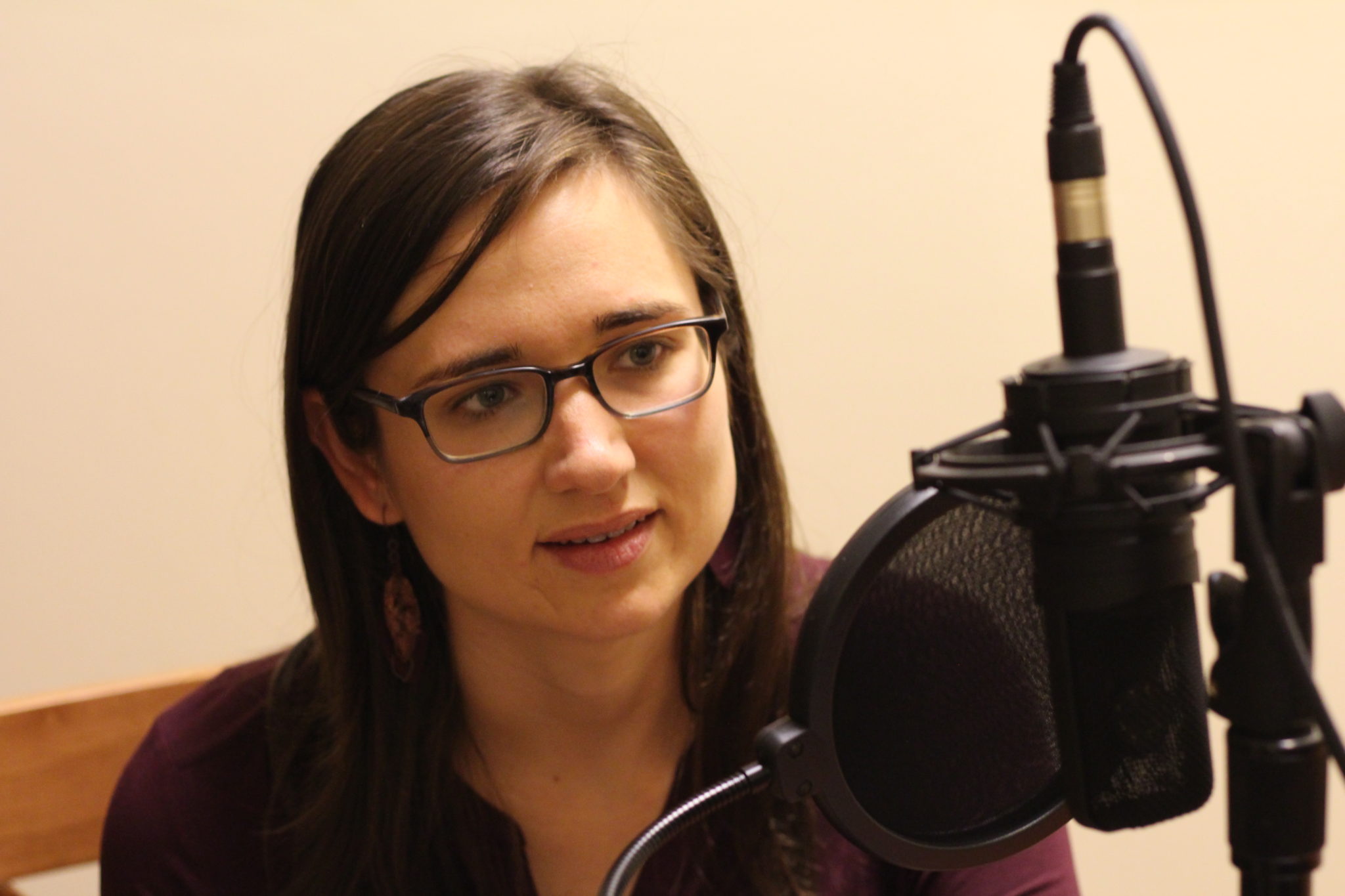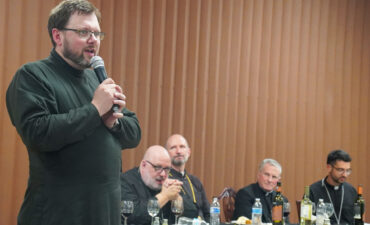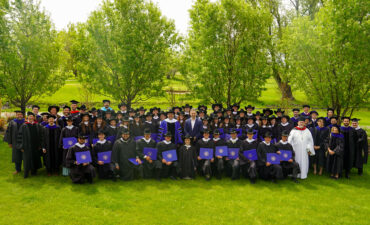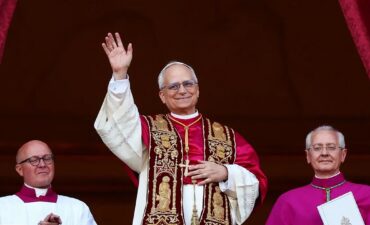Meet Our New Professors, Part 2: Dr. Tiffany Schubert
At the beginning of this academic year, WCC brought five new professors on board to help with the steadily-growing student body. Today, we introduce Dr. Tiffany Schubert.
What will you be teaching at Wyoming Catholic College?
I will be teaching in the Trivium and Humanities Tracks. This semester, I am teaching Trivium 101 and Humanities 301.
What were the factors and events that led you to find and want to work for Wyoming Catholic College?
I heard about Wyoming Catholic College from fellow graduate students at the University of Dallas. I was particularly attracted to the College because of the ordered beauty of its curriculum and because of its commitment to liberal education born in wonder and directed towards human excellence. In Dallas, I taught composition at a local community college where I was required to use a textbook that featured example essays about pressing social issues; these essays left students with the impression that the truly important subjects to think and write about are whatever current crises society happens to be facing. Such reading conditions their souls to a chronological parochialism. Certainly, human beings are particular, rooted in place and time, but we can transcend that particularity. We have within us an epic impulse, a desire to contemplate the whole cosmos in all its splendor. Wyoming Catholic College’s curriculum seeks to awaken and satisfy that desire; it demands that its students attend, not simply to the urgent present, but to the perennially true. The curriculum also seeks to impart some vision of the whole. My experience at community college has helped me see with greater clarity the profound importance of a university that does not treat the human person simply as a useful functionary to be taught whatever society, at that particular moment, happens to demand. Some of my students had liberal impulses, but they have not been nourished; they had an inchoate sense that human beings are not just workers in an economic system, but they have never been shown anything else. They had never been instructed in the liberal passion of wonder. When wonder is the animating passion for education rather than a materialistic desire for success, education becomes not a means to an end, but an end in itself. If human beings are also ends in themselves, good regardless of their specific economic contribution, then a liberal education, founded in wonder and directed towards human excellence, is more fully human than an education that presents knowledge as a useful tool to solve social problems.
What drew you to the specific discipline you pursued in graduate school?
My first undergraduate English class was taught by a Southern gentleman with a strong accent and a sincere dislike for television. One day, he took a survey of the class, asking us to name our favorite books. As most of my classmates listed works of literature, I realized that such works capture the hearts and imaginations of people more than philosophical treatises. In highschool, I loved literature, but my intellectual explorations had focused on philosophy and theology. Perhaps literature was also a powerful medium for exploring ideas and pursuing truth. As I continued my English studies, this proved true as I discovered the power of poetry to address and illuminate profound questions about reality, while also moving the affections and capturing the imagination. I also began to see Christianity as a story, not just a theological system. That realization pointed to the importance of stories. If Christianity was one, then there was something about narrative itself that was worthy of study.
How do you relate your faith to your specific field of study?
I believe that literature cultivates an Incarnational habit of mind as the universal and the particular come together in a moment of revelation. Because the Incarnation was a specific, historical act, human embodiment and the messiness of historical contingency are ennobled. Literature revels in both; a good story is about a particular person at a particular time. Yet, despite this particularity, a good story can speak to all people at all times, just as the Incarnation has done. The narrative structure of Christianity has also affected my literary studies. Modern scholars often favor tragic endings over happy endings because they assume that reality is inherently tragic. As a Christian who sees life as comic, headed towards resurrection, paradise, and the beatific vision, I am able to do what some scholars cannot—treat the happy ending as a subject worthy of serious study.
What is your (educational) background?
I graduated in 2008 from Hillsdale College with a B.A. in English. I earned an M.A. in literature from the University of Dallas in 2012 and a Ph.D in 2016.
What do you enjoy doing outside of the classroom?
Baking and singing in choir
What will be the biggest change for you moving to Lander, WY?
I moved from Dallas, so it was strange not to be able to swim all year round!
What excites you most about teaching at Wyoming Catholic College?
The students. I was so impressed by their passionate attentiveness. And also the horses. I took lessons for many years and would love to start riding again.
What would you like to bring to WCC to enhance and improve the experience for the students?
I’m hoping to focus on the art of classical imitation in my Trivium class as a tool for enriching the clarity and beauty of the students’ writing. I would also like to have my students memorize and deliver selections from Shakespeare.





